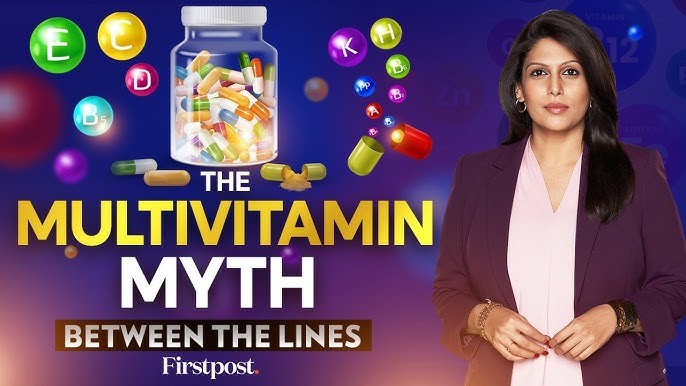In the vast and often confusing landscape of health and wellness, few products elicit as much widespread adoption and debate as the humble multivitamin. Marketed as a daily insurance policy against nutritional gaps, a simple pill promising enhanced energy, improved immunity, and even disease prevention, multivitamins have become a staple in medicine cabinets across the globe. Yet, beneath the pervasive marketing and conventional wisdom lies a more nuanced truth, one that challenges their universal necessity and underscores the paramount importance of a holistic approach to nutrition. Understanding the genuine role of multivitamins requires a discerning eye, separating scientific evidence from widespread assumption.
The appeal of the multivitamin is undeniably strong. In a fast-paced world where balanced meals can be a challenge, the idea of conveniently supplementing all necessary vitamins and minerals in a single dose offers a comforting sense of security. Many individuals believe that even with a generally healthy diet, modern food processing, soil depletion, or individual lifestyle factors might leave them subtly deficient. For someone juggling a demanding career in Bangkok, for instance, relying on quick meals or sporadic eating patterns, the multivitamin might seem like a pragmatic solution to ensure they’re covering their nutritional bases. This perception is actively fueled by a multi-billion-dollar supplement industry.
However, the scientific consensus on the broad benefits of multivitamins for the general, healthy population is, at best, mixed, and often leans towards skepticism. Numerous large-scale, long-term studies, including reviews by reputable organizations like the U.S. Preventive Services Task Force, have concluded that there is insufficient evidence to recommend multivitamin supplementation for the prevention of chronic diseases, such as heart disease, cancer, or cognitive decline, in healthy, non-pregnant adults. In many cases, the body simply excretes excess water-soluble vitamins, rendering high doses ineffective and, in some instances, potentially harmful for fat-soluble vitamins (like A, D, E, and K) which can accumulate to toxic levels.
The core argument against universal multivitamin use centers on the principle that nutrients are best obtained from whole foods. Fruits, vegetables, whole grains, and lean proteins offer a complex matrix of vitamins, minerals, fiber, antioxidants, and phytochemicals that work synergistically in the body—a synergy that cannot be replicated by isolating individual nutrients in a pill. For example, the vitamin C in an orange comes packaged with flavonoids and other compounds that enhance its absorption and beneficial effects, something a synthetic vitamin C tablet cannot fully emulate. Focusing on a diverse, nutrient-dense diet should always be the primary strategy for obtaining essential nutrients.
Despite the general skepticism for blanket recommendations, there are specific populations for whom multivitamin or targeted nutrient supplementation can be genuinely beneficial, or even necessary. Pregnant women, for instance, are often advised to take prenatal vitamins containing folic acid to prevent neural tube defects. Individuals with certain dietary restrictions, such as vegans, might need to supplement Vitamin B12, which is primarily found in animal products. Those with specific malabsorption issues due to medical conditions (like Crohn’s disease or celiac disease) or who have undergone bariatric surgery may require targeted supplementation under medical supervision. Older adults, whose bodies may absorb certain nutrients less efficiently, might benefit from Vitamin D and calcium supplements to support bone health. In a region like Southeast Asia, where Vitamin D deficiency is surprisingly common despite ample sunlight (due to lifestyle, skin tone, and sun avoidance), a targeted Vitamin D supplement might be more impactful than a general multivitamin.
The “truth” about multivitamins, therefore, is not that they are entirely useless, but that their broad-spectrum use for healthy individuals is largely unwarranted by scientific evidence. Instead of viewing them as a shortcut to optimal health, it is far more prudent to view them as supplemental, potentially beneficial in specific circumstances, but never a substitute for a balanced diet. For a business professional seeking to optimize their health for peak performance, the focus should shift from a daily pill to the daily plate. Prioritizing whole, unprocessed foods, ensuring adequate hydration, managing stress, and engaging in regular physical activity will yield far more significant and sustainable health benefits than relying on a multivitamin alone.
Before incorporating any supplement, including a multivitamin, into your routine, the most expert advice remains consistent: consult with a healthcare professional. A doctor or a registered dietitian can assess your individual dietary intake, lifestyle, and any underlying health conditions to determine if you have specific nutritional deficiencies that warrant targeted supplementation. This personalized approach ensures that any supplement use is truly beneficial and not merely an expensive exercise in wishful thinking. In essence, the real “insurance policy” for health lies in a thoughtful, holistic approach to lifestyle, with nutrition from whole foods at its very core, making multivitamins a potentially useful, but often non-essential, add-on.




